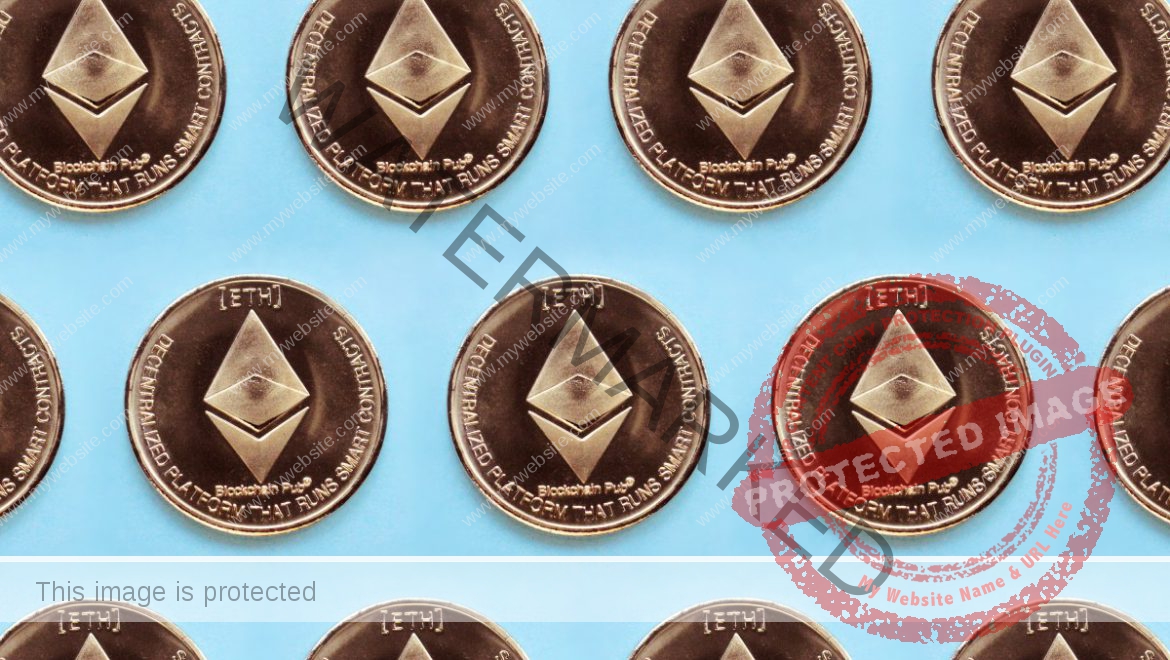Lacey Hunter thought all was well as she put her startup through the three-month Newchip accelerator. Then the organization filed for bankruptcy in May 2023. Things went from bad to worse later that year when she discovered warrants of her company — rights to buy an ownership stake — had become part of the proceedings, which ultimately forced her to shut down her company.
In 2022, Hunter started TechAid, an AI smart-matching tool for humanitarian aid, and was just beginning the accelerator’s curriculum when Newchip filed for bankruptcy.
“I made a few friends, but functionally, got nothing from Newchip,” Hunter said. “I was shooting to have the curriculum done by August, but in May, the website went down.”
The now-defunct Austin accelerator had filed for bankruptcy amid employee and customer discontent. The court has since ordered the company to auction off the warrants it held in more than 1,000 of the startups that went through the accelerator program.
Normally, private companies like startups have control over which investors are allowed to buy shares and the prices they pay. But the bankruptcy court, which works to restore creditors rather than equity holders, isn’t allowing Newchip’s startups to exert that kind of control. Instead, the auctions are ongoing, with the first tranche already sold and upcoming tranches expected to be sold this spring and summer.
Founders are outraged — including some, like Hunter, who have actually lost their companies as a result.
TechAid fought the sale of the warrants prior to closing the company. Hunter tried to buy them back herself from Newchip, but the organization’s lawyers declined her offer, she told TechCrunch. She had lined up a grant from a bank to help fund her offer, but it ultimately told her no because it was too risky for them to be involved with an unknown warrant holder on her cap table. So Hunter felt she had no choice but to shut TechAid.
“There was no path,” Hunter said. “I knew I was not going to be able to raise money. I mean, I couldn’t even get a no-strings-attached grant. I totally get that, but it still sucks.”
Newchip’s fall from accelerator grace
Newchip started out as an aggregator of top deals from “various equity-based crowdfunding platforms,” according to Silicon Hills News, and later evolved into an accelerator that promised to help startups grow their companies and meet investors — for a hefty fee.
It charged startups between a few thousand dollars and $18,000 to $20,000 for its training programs, founders said. Startups also granted Newchip the right to buy $250,000 worth of shares in the company at a later date, but at their current valuation — this type of deal is also known as a warrant.
Newchip founder and CEO Andrew Ryan previously faced harsh criticism about his leadership style, including allegations that he could be “abusive” and threatening to employees, according to eight former employees who walked out. (Ryan acknowledged to TechCrunch last year that his leadership style was based on “a military mindset.”) One example involved a meeting of about 15 employees in sales, operations and marketing. Ryan had asked the leaders of each department to read a book on how to help college volunteers be more passionate about volunteering, recalled one person who attended the meeting. Ryan asked two of the company’s leaders to lead the group in a discussion of the book. But many were confused by it and didn’t see how it applied to Newchip’s business.
“They were struggling with it. Andrew kept jumping in and interrupting them, and directly challenging them.” And finally, recalled the source, Ryan said, “This was a test for individuals that I’ve asked to do this today. I was going to fire one of you, based on whoever did the worst job.”
He then singled out one person, told the room the person was fired, and, this person recalled, Ryan then said, “I do stuff sometimes to see who’s loyal and to see who is going to do what I tell them to do. This was a test and you failed. You’re out.’”
After seeing Ryan fire this guy in front of the whole room, “I literally watched all of his direct reports sitting there saying to themselves, ‘I will never trust this man again,’” the source said.
Ryan contends that the person who was fired during that meeting had behaved aggressively after being singled out. Ryan also claims that the individual had come unprepared to lead the meeting, which Ryan viewed as an “act of overt insubordination,” telling TechCrunch: “While conducting the termination publicly in that meeting may seem harsh, it was intended to reinforce the gravity of the situation and ensure all managers understood that we took these training sessions and their responsibilities as leaders seriously.”
Image Credits: TechCrunch
When Newchip (which also did business under the name Astralabs) initially filed for bankruptcy in March 2023, it was a Chapter 11 debt reorg. It then went into Chapter 7 — dissolution and liquidation — two months later.
Its Chapter 11 filing revealed that it had $1.7 million in total assets and $4.8 million in total liabilities. But the value of the warrants was apparently not taken into account at that time, a source familiar with internal happenings said. Those warrants were estimated to be valued at an eye-popping just under $500 million by Austin-based VC fund and early Newchip investor Sputnik ATX, according to a document viewed by TechCrunch.
“I feel so much stress and embarrassment. I’m a struggling founder and don’t have the money to pay for a lawyer. Here was this accelerator supposed to help founders, and instead it is imposing stress on young founders.”
Management had not been keeping up with the warrants to the point where it had missed that some companies had exited or raised money, losing out on the potential upside, noted Kerstin Hadzik, a consultant who was brought in to serve as interim CFO a few weeks after the initial bankruptcy filing.
How much did Newchip potentially lose? Sputnik ATX said it identified $54 million in warrant value from companies that had liquidity events “that should have been reported to Newchip but were not,” according to documents viewed by TechCrunch.
In Hadzik’s view, Newchip might have also been saved from going into Chapter 7 if Ryan had been willing to step down as CEO and had presented the warrants as assets when initially filing for Chapter 11.
The judge repeatedly asked Ryan if he would voluntarily step down and let someone else, such as a chief restructuring officer, run the company. Ryan repeatedly dodged the question, expressing doubt that anyone could do so successfully. Ryan also noted that employees had requested “a new CEO” and later claimed that he “was going to step aside … but the shareholders and investors, as part of them putting capital in, preferred that I stay here to make sure that we have the capital … to continue driving the business.”
Ryan also admitted that he was the company’s “major owner and shareholder” and that he had just “terminated all the board” the week before, just after having filed for bankruptcy, according to court documents viewed by TechCrunch.
“The judge was offering like a lifeline,” and Ryan “just said no,” Hadzik recalled.
In a Zoom interview with TechCrunch back when we first reported on the bankruptcy, and in two LinkedIn posts in 2023, Ryan said that he accepted “full responsibility for the events at Newchip.”
Ryan later alleged that there was an attempted coup on the part of an investor but sources say that Ryan had actually asked early investor Joe Merrill to serve as CEO before changing his mind and resuming the role himself. Merrill, who was an early investor in Newchip under its previous model and also co-founder of Sputnik ATX, declined to comment beyond noting that he believed the attempted sale of the warrants was a valid move.
Founders fight for their companies
One founder, who asked to remain anonymous, told TechCrunch that Newchip had approached her on LinkedIn and told her if she got approved to join, she would get introductions to investors. So she paid a $7,500 deposit and was all set to join Newchip when a founder friend told her to “never pay for introductions.”
She decided to hear out Ryan. What convinced her to ask for her money back was that Ryan “blew off our meeting.” He reached out later, but she had already emailed Newchip asking for her deposit back on the basis that she had not started yet.
The founder got her money back, but Newchip didn’t void her contract, so she is now part of the bankruptcy lawsuit. That’s when she learned that someone could buy the warrants of her company for pennies on the dollar, and “it could screw your valuation going forward,” she said.
“I feel so much stress and embarrassment,” she told TechCrunch. “I’m a struggling founder and don’t have the money to pay for a lawyer. Here was this accelerator supposed to help founders, and instead it is imposing stress on young founders.”
There was a period of time when founders could object to their warrants being sold, according to Chad Harding, managing partner at Peak Technology Partners, the investment banking firm tasked by the court to sell the warrants.
The deadline for those in the first tranche to object to these sales was January 15, he told TechCrunch. Founders from all over the world, including Australia and Finland, filed objections, according to court documents.
“We were in the process of obtaining a refund from Newchip when Newchip went bust,” wrote Veronica Hey, CEO and founder of Australian startup Ok Away. “The contract is therefore null and void and the warrant attached to it is not applicable. None of this will stand up in an Australian court. If you continue to pursue in ‘selling’ this warrant you are selling something that does not exist and there will be repercussions.”
But startups’ objections were made in vain when the court overruled them. A bankruptcy court’s goal is to oversee the selling of assets to settle debts. If there is money left over, it’s paid to shareholders. Ryan is the majority shareholder.
So the warrants are being sold in three tranches. The first involved 133 companies, including for startups such as Cleanster.com, bitewell, Agshift and Firehawk Aerospace. Combined, those 133 startups had raised over $340 million in funding, according to documents shared by the sales agent with potential investors and viewed by TechCrunch.
Ultimately, the sales agent ended up selling 28 warrants in just four companies from the first tranche for a total of about $58,000, presumably at a discount. Successful bidders included Bitewell and ClearForce — startups that bought back their own warrants in advance for $5,000 each, according to an agreement with the trustee — as well as Palm Ventures and Angel Deal Syndicate. The latter purchased the bulk of the warrants, spending $43,000 on warrants in 24 companies, according to court documents viewed by TechCrunch.
The second tranche will likely be sold this summer and will include over 1,400 warrants for sale, according to Harding. The bid deadline will likely be late July, Harding said.
Founders of those startups included in the second tranche will also have the opportunity to object with a proposed deadline of May 31.
Ryan maintains that extensive efforts “have been made to notify stakeholders well in advance.”
“This has afforded ample time for interested parties to access information and documents, raise any objections or issues, and prepare for participation in the sale,” Ryan told TechCrunch.
When dreams become nightmares
Like TechAid’s Hunter, Garrett Temple blames the loss of his company on Newchip’s demise. He, similar to Hunter, also participated in Newchip’s accelerator program from January until May 2023. His startup, Novogiene, was a medical tech company focused on epidemic prevention.
Temple put around $7,500 on his credit cards to be part of the program and said that he never spoke with investors. His main reason for doing Newchip was to get investors for a $500,000 round, in part to pay for a small production run of his device so he could send it to universities and medical schools for pilot testing.
The meetings with investors were supposed to happen after a demo day that was scheduled for the summer. But when Newchip shut down in May, that demo day, and hence those introductions, didn’t happen. Temple wasn’t able to keep going and ended up dissolving Novogiene in the summer of 2023. As such, his company no longer existed for warrants to be sold to potential investors.
Temple said he spoke with his bank about getting money back from the program since he used credit cards. The bank was at first successful in getting $5,000 returned. However, about a month later, Temple noticed that money was no longer in his account and believes Newchip protested the funds.
Though Temple has moved on, he still has some intellectual property for Novogiene and says he is hoping at some point to license the technology to someone else or perhaps at another time pick up where he left off.
“It was very sad to call it quits because getting the funding to make those units was the only hurdle before making serious progress,” Temple said. “If they connected me with investors like they said, I could have made my invention, gotten efficacy and would be shipping units right now. I really do believe that.”
Accelerator operators sell dreams. But that doesn’t always mean that the accelerator will come through. And sadly, the founders who buy into those dreams can be the ones who end up paying the price.












